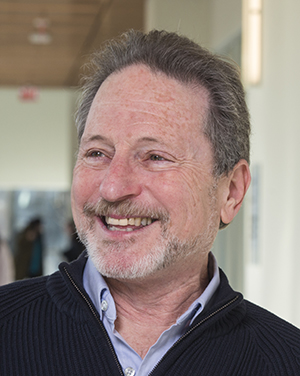
Mark Ginsberg
The United States must treat violence in the country with the same urgency as the so-called wars on drugs and poverty, though with a twist on branding, a George Mason University professor said.
“We have to not create a war on violence but create peace on violence,” said Mark Ginsberg, dean of Mason’s College of Education and Human Development. “This should become a national priority that begins in schools and continues in communities around the country. That will allow the best minds, the best thinkers, to create plans to address this problem, which is far beyond, proportionally, anywhere else in the world.”
Ginsberg’s comments come on the heels of the shooting at a Santa Fe, Tex., high school that killed 10 people, and a shooting at a Noblesville, Ind., middle school that injured two.
Creating safe schools goes beyond reacting to “these mega-events that are obviously very traumatic for communities,” Ginsberg said. It also is important to address “other kinds of aggression that take place in schools that are also very consequential and more regular and more prevalent and effect many more students, nationally, than mass violence incidents.”
He said the movement to arm classroom teachers is the wrong approach.
“It may feel like the right approach to some who want to act in ways that might create some immediate sense of greater safety,” said Ginsberg, who in 2015 was named one of the nation’s 30 most influential deans of education. “But in the end, it doesn’t make us any safer. It makes us more anxious and more concerned.”

Fred bemak
How to reduce that anxiety and concern about school shootings? Fred Bemak, a Mason professor and academic program coordinator of the university’s counseling and development program, urged counseling and training faculty and staff to better cope with student fears.
“You can’t say, ‘Oh, it will never happen, don’t worry,’ ” Bemak said. “That’s not true. The real important part of talking with students is to differentiate between possibility and probability, to go in and say, ‘This could happen, it’s not likely, it’s unusual.’ ”
Even so, “I don’t think it makes sense to sit down with students and have those conversations without working with other components first, meaning talking to teachers about how to talk about this,” Bemak added.
For Ginsberg, an even larger conversation must take place to stop school violence.
“The real solution, beginning with the availability of lethal means, in particular guns, is teaching our students, families and our communities about other ways of behaving,” he said. “The issues of violence are much more endemic to our society than isolated, but high profile and very traumatic, violent events.”
Mark Ginsberg can be reached at 703-993-2004 or mginsber@gmu.edu.
Fred Bemak can be reached at 703-993-3941 or fbemak@gmu.edu.
For more information, contact Damian Cristodero at 703-993-9118 or dcristod@gmu.edu.
About George Mason
George Mason University is Virginia’s largest public research university. Located near Washington, D.C., Mason enrolls 36,000 students from 130 countries and 49 states and Washington, D.C. Mason has grown rapidly over the past half-century and is recognized for its innovation and entrepreneurship, remarkable diversity and commitment to accessibility.
